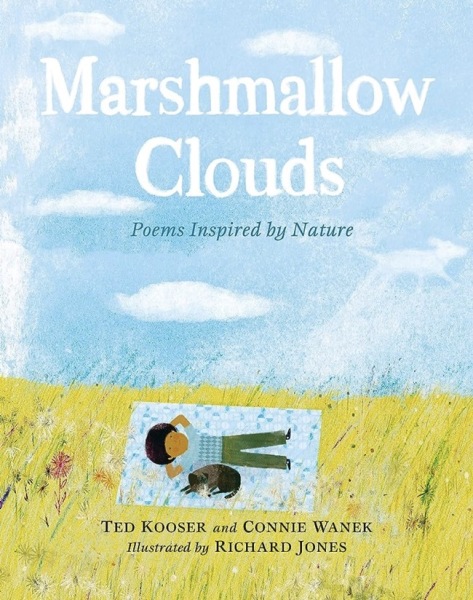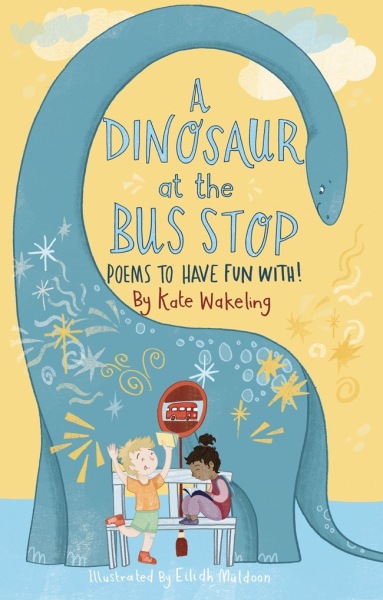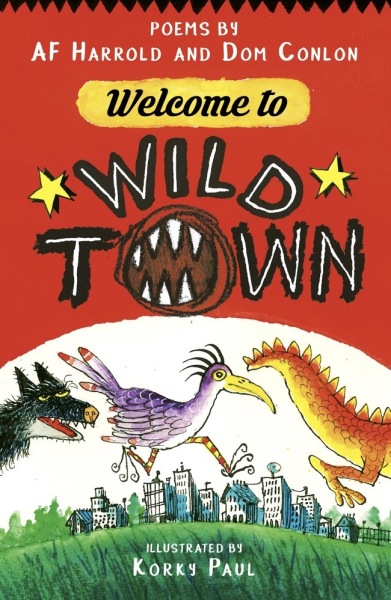Annie Fisher looks at three of the best new poetry collections for children
Welcome to Wild Town
Poems by A.F. Harrold and Dom Conlon, illustrated by Korky Paul (Otter-Barry Books, 2023) £8.99
This collaboration between two highly entertaining and prolific children’s writers, AF Harrold and Dom Conlon, would appeal to most 7+ readers, particularly imaginative children who might carry some sadness, loss or anger in their lives, as many do.
There’s more going on in this book than might seem apparent when you first flick through. The poems are wild in several senses of the word: wacky-wild; nature-wild; animal-wild; rebel-wild; angry-wild; free-wild; but behind the playfulness they say some serious things which you only appreciate by reading the whole book.
Wild Town is an invented territory of the imagination where lions, tigers, bears and a great many spiky-toothed wolves roam the streets with “mountains / in their eyes / and fir forests / in their voices.” Any child brave enough to be out needs to have their wits about them. The first poem asks the reader to sign up to ‘The Wild Agreement’:
I the undersigned, understand
that by living in this wild land
I may become completely stuck
within the pages of this book
where nothing’s locked inside a cage
where danger leaps from off the page
Korky Paul’s jagged, anarchic drawings are perfect and include a map of Wild Town where the roundabouts at each road junction are drawn as open mouths with terrifyingly sharp teeth. It’s great fun. It’s different. I loved it.
A Dinosaur at the Bus Stop
Poems by Kate Wakeling, illustrated by Eilidh Muldoon (Otter-Barry Books, 2023) £8.99
Following her first two collections for children, Moon Juice and Cloud Soup, both published by The Emma Press, A Dinosaur at the Bus Stop is Kate Wakeling’s first book for the very young (5 – 7-year-olds). It’s good to see poetry that, as well as being simple, playful and musical, seems to respect and challenge the intelligence of these very young readers.
I recently saw Kate perform these poems in a school near me. She began with ‘Probably the Fastest Poem in the World’, which she delivered at an ever- accelerating pace, as the children egged her on excitedly with a ‘faster faster’ refrain:
Lightning bolts and racing cars
and laser beams and shooting stars,
bullet trains and bats and cheetahs,
the world-record holder for the 100 metres,
faster faster, don’t get slow,
faster faster, go go go
My personal favourite was a poem inspired by the Japanese idea of ‘shrin yoku’ or ‘forest bathing’. Here’s the beginning and end of ‘In the Quiet of the Trees’:
The forest is a special kind of still.
In the quiet of the trees,
I breathe deep as roots.
My mood grows as bright
as the light
that streams through leaves.
[…]
I become
a special kind of me.
But the piece that delighted the children most of all was a sort of postmodern toilet-humour poem called ‘This is a Sensible Fart Poem’, which considers the various guffs, trumps and squeaks produced by the human bottom in a totally serious way (po-faced, you might say!). A footnote to the poem gives these instructions on how we are supposed to respond:
- This is a very sensible poem. It is important that anyone reading or listening to this poem stays very serious and very sensible from beginning to end. Thank you.
No chance!
Marshmallow Clouds (Poems inspired by Nature)
by Ted Kooser and Connie Wanek, illustrated by Richard Jones (Walker Books, 2022) £14.99
This book has just been awarded the Clippa prize (the only award solely presented for published poetry for children in the UK). It’s a worthy winner.
Ted Kooser (Pulitzer prizewinner and one-time American Poet Laureate) was already familiar to me as the author of Winter Morning Walks, his 2001 collection of imagist poems sent as daily postcards to a friend while Kooser was recovering from cancer treatment. I love Kooser’s wise simplicity and have used several of his adult poems when working with young children. Connie Wanek wasn’t known to me, but her style is very similar to Kooser’s. They clearly have a deep mutual respect.
The poems are organised in four sections according to the elements: fire, water, air and earth, and focus on everyday sights and sounds – from clouds, thunderstorms and tadpoles to fly swats and the tv remote control. They’re in lyrical free verse, with lots of personification which children readily understand. There’s gentle humour in many of the poems and a vaguely elegiac overall tone that made me feel I was porch-sitting somewhere in the American midwest on a starry night with a much-loved grandparent. Here’s the beginning and end of a poem called ‘Barn’:
This old barn doesn’t know where it is
because it has never been anywhere else,
but what’s it missed? […]
Day in and day out it pulls on
its patched-up underwear of rotten boards
beneath its overalls of corrugated metal,
and looks out over what’s always the same,
and combs its roof straight down the middle.
I like that these poems celebrate the world and encourage children to look at it with appreciation without any berating eco-message. It’s all implicit. This is from ‘Trees’:
Trees are born blind and in need of each other.
With luck they come up in a forest with brothers
and sisters to listen to. Growing up for a tree
is mostly reaching out and out to touch another,
and that’s enough of a life.
Richard Jones’s artwork, with its subtle, pastel palette and spacious style is perfectly tuned to the mood of each poem. This is a collection adults will enjoy as much as children. I thoroughly recommend it as a beautifully written, calming bedtime read.
Annie Fisher’s background is in primary education, initially as a teacher and later as an English adviser. Now semi-retired she writes poetry for both adults and children and sometimes works as a storyteller in schools. She has had two pamphlets published with HappenStance Press: Infinite in all Perfections (2016) and The Deal (2020). She is a member of Fire River Poets, Taunton




